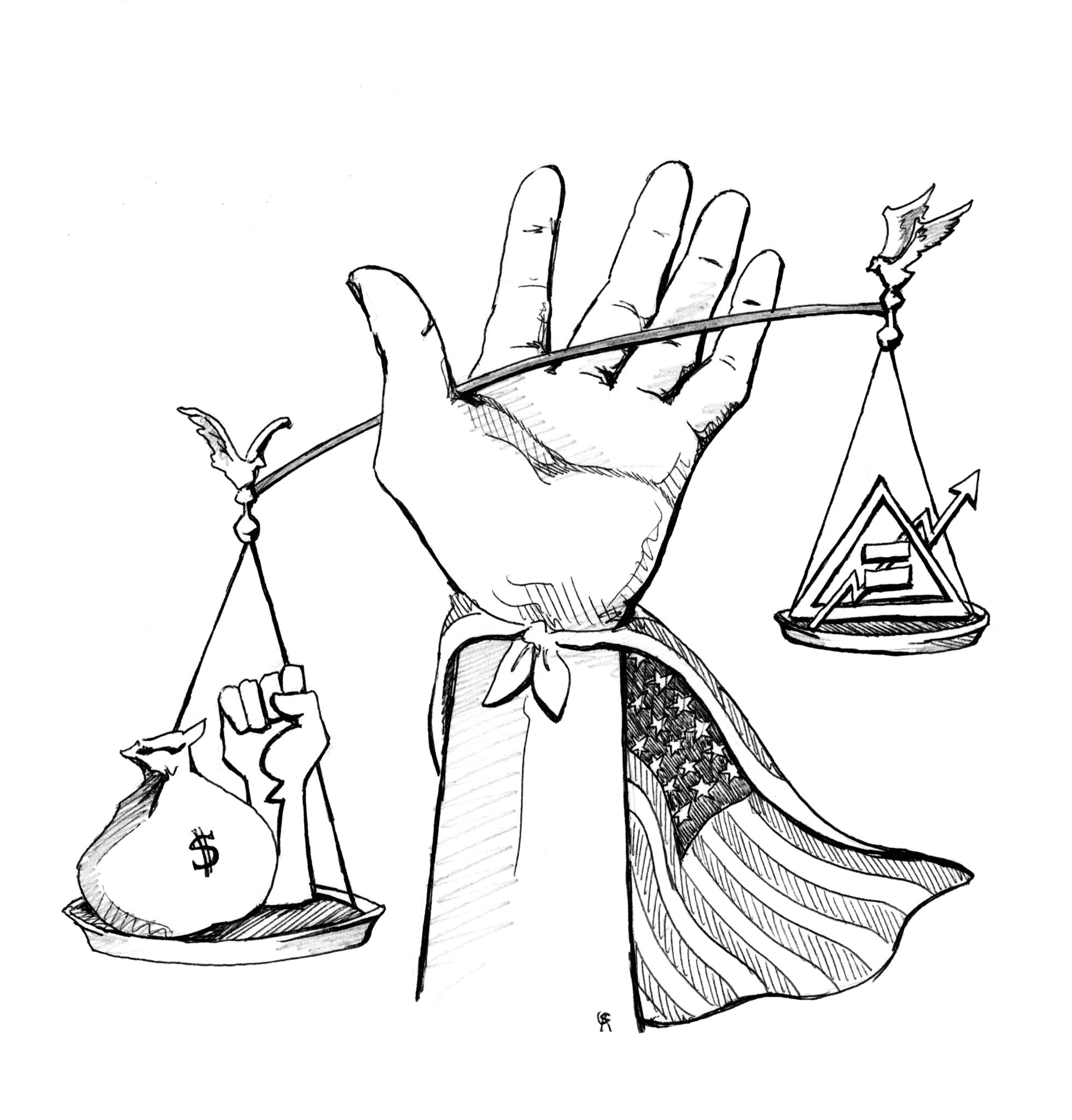
A five-person panel discussed how white supremacy and the idea of of the “white savior” affect the operations of nonprofits in New Haven and across the United States on Wednesday night at the Afro-American Cultural Center. Over the course of an hour, panelists described to the packed house the prototypical white savior who does not truly understand or meet a community’s needs, applying the concept to the nonprofit sector.
“The nonprofit industrial complex is very real and very alive in New Haven and needs to be dismantled just like any other oppressive system,” said Kerry Ellington, organizer for People Against Police Brutality. “White folks are centering themselves in these spaces and don’t know how to listen to the communities they serve.”
The event was organized by members of the U.S. Health Justice Collaborative, an initiative started by students in Yale’s health professional schools.
The panelists — a journalist, nonprofit directors and several organizers — described instances from their careers in activism in which they encountered “white saviorism,” or in the case of the two white panelists, displayed it themselves. Panelist Jordan Flaherty half-jokingly gave the example of Batman as a white savior, because he is a rich white man who dedicates his money to gadgetry and vigilante justice, rather than investing in his community.
The event was met with a far larger audience than expected, according to organizer Robert Rock MED ’18. Over 1,300 people indicated they were interested in attending the event on Facebook, well over what the building can hold at capacity. Although many potential attendees were turned away at the door because of space constraints, they were able to view a livestream of the event on Facebook.
The panel discussion drew interest from Yale affiliates, nonprofit leaders, activists and New Haven residents alike. Cara Donovan SPH ’18, one of the organizers, told the News that it is important for Yale events to reach out to the New Haven community early in the planning process to incorporate them into the dialogue.
Barbara Tinney, a panelist and the executive director of the New Haven Family Alliance, described her initial shock at the “audacity” of the event’s title, which read in full, “Paved With Good Intentions: White Saviorism and the Nonprofit Industrial Complex.” However, she continued, the themes of the panel echoed countless discussions she has had with colleagues over the course of her lengthy career in the New Haven nonprofit scene. There is a conflict between the important work nonprofits do and many of the oppressive power dynamics they can help to maintain, Tinney said.
The panelists touched on many hot-button topics, such as the predominance of white people at the head of nonprofits and white fragility — a term that commonly refers to the avoidance of difficult racial conversations in order to prevent white discomfort. “When my white allies use their claws, they could get pushback. When I hiss, I could get shot,” said panelist Kica Matos, the director of immigrant rights and racial justice at the Center for Community Change.
Matos added that discomfort should not stop white allies from showing up to support people of color.
James Cramer DIV ’17 stated that the attention the panelists drew to the racial disparity in nonprofit leadership positions made the event particularly compelling, adding that he believes that it is time for those organizations to change whom they “look to for donations, look to for volunteers and look to for advice.”
The panel discussion was followed by a 30-minute Q&A period. During this portion, audience members asked questions that stemmed from their experiences, some raising the possibilities of reparations for communities of color or taking back power in nonprofits that operate in communities of color.
Aaron Lee, who was invited to cater the event, found himself moved by the discussion and asked the panelists their opinions on the topic of reparations. Lee, who is black, described himself as socially aware and praised the organizers and panelists for calling attention to issues that have long gone underdiscussed. According to Lee, now is the ideal moment to address these issues, as America takes time to reflect on its racial history in the wake of the Trump presidency.
“America’s built off slavery, segregation, Jim Crow and all the things black people have contributed to society and have not been honored for; it’s like we’re just in the back,” Lee said. “We just want a piece of the pie, we’re not angry, we’re not frustrated, we just want to be happy. We just want to be free.”
Maya Chandra | maya.chandra@yale.edu







